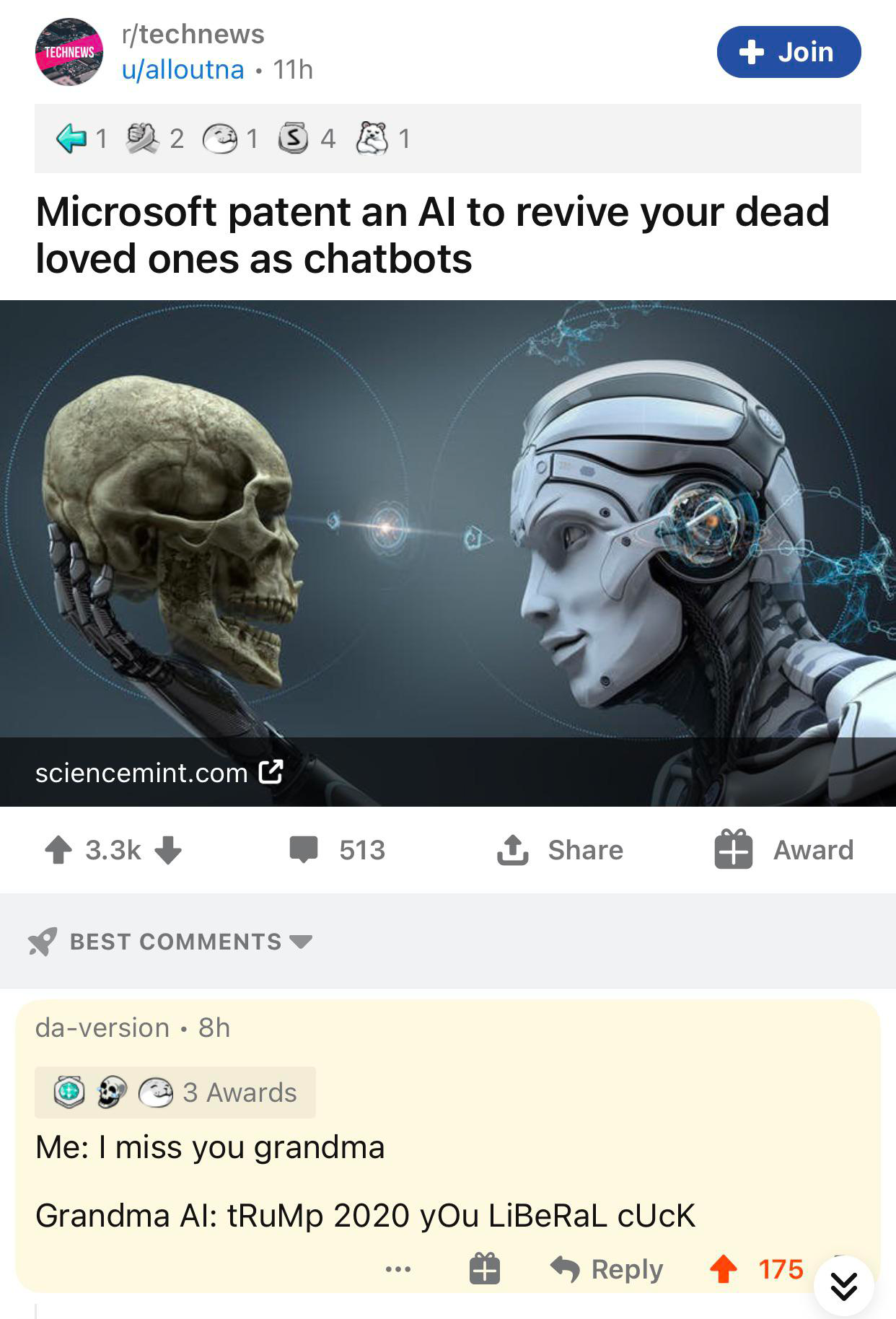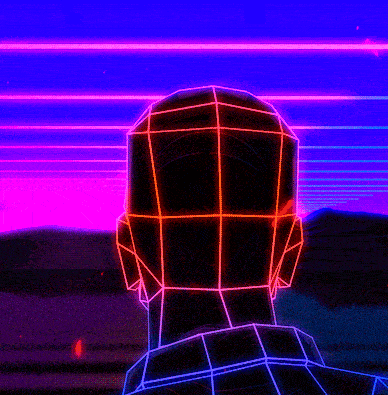That sounds exactly like that black mirror episode
Be Right Back. Probably one of the creepier episodes IMO.

Just spin grandma up like in altered carbon
Oh God, that second season 😵💫
I forget the name of the service, but this is exactly how a popular ai chatbot came around. Somebody wanted to talk to a friend who had died and they made a bot using messages they’d sent and then spun it up into a generic bot service that a lot of people use as fake boyfriend/girlfriend AI
Replika is probably what you’re thinking of. It was nice when it started, sort of like a journaling app in a way but which could return insights. Then it started getting monetized, of course.
I truly miss the days when it was an AI focused on introspection. Now they prioritize (erotic) roleplay and paid cosmetic items.
It was ment to replicate you. By telling it about yourself it learned to replicate you, hence the name Replika.
Now it makes no sense. You can’t even talk to it about normal stuff, everything turns sexual straight away.
Yep, that’s the one
The real question is - if this of a trend that will continue moving forward, and the tech behind it continues to improve, just how broad might such resurrection occur?
Would there be one day in the future that one might recreate an entire city with everyone in it from years ago? Would they know that they are recreated, or just go about their days in a digital twin of the past?
What about an entire planet?
We puzzle over the incompatibility between continuous spacetime in general relatively and the experimentally validated odd behavior of discrete building blocks composing our world - but this pattern is replicated in our own emerging construction of virtual worlds with continuous procedural generation converted to discrete units for tracking state changes by free agents, down to those building blocks changing memory optimization depending on observation/interactions.
Meanwhile we’re trending towards a future where the past can be increasingly recreated using emerging technology.
As creepy as some may find the idea of digitally bringing back grandma - the much more pertinent issue that people might want to start thinking about is if one day in the future you’re the grandma being brought back.
I am not against this as long as it is part of the grieving process. I remember when I lost a relative a few times having “conversations” with them in my head. I knew it was fake but it helped. Especially since we lost him so quickly. It felt like I had a chance to say goodbye. If he had lived only three more weeks he would have met his great-granddaughter. I “told” him how awesome a newborn she is.
There is potential here as an idea. Mourning is shit this could make it feel slightly less shitty.
How is this dystopian?
It’s the same shit as “psychics” except instead of a weird drifter, it’s a chatbot…
Something like this doesn’t seem like a healthy step towards accepting a loved one’s death.
This company is (presumably) monetising it and advertising to people at a vulnerable time in their life.
Seems dystopian to me.Not just dystopian, but downright preditory.
The scale is a big part, as all dystopias are just real world things turned up to 11. Easily accessible automated people replacements have been a staple of sci fi for quite a while, often with horrifying implications and outcomes in the stories.







